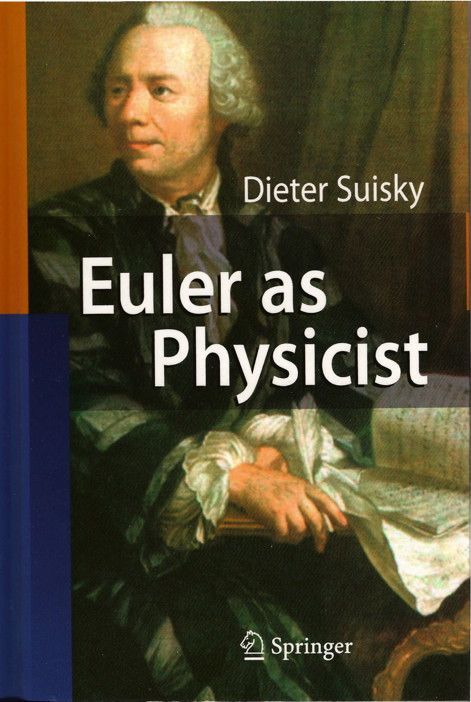Euler as Physicist

Dieter Suisky
Euler as Physicist
Springer 2009, XXIII, 338 p., 16 illus., Hardcover, ISBN: 978-3-540-74863-2
Recently we accentuated in the second contribution of our series Physics Anecdotes, "Euler and the Fiasco at Sanssouci" the discrepancy between the merits Euler had in the development of physics in the 18th century and the lack of a contemporary esteem in comparison to Euler’s contributions to mathematics. As a quite natural consequence, there are several books devoted to Euler as mathematician, but not as physicist. Very recently, however, the publication of a book on Euler as Physicist had been announced whose content is summarized as follows:
"Though his pioneering work on mechanics had an essential influence in the 18th century, its impact on the 19th century was obscured by the overwhelming success of his mathematical writings. Euler anticipated Mach’s later criticism of absolute motion and Einstein’s assumption on the invariance of the equation of motion in inertial systems. It will be demonstrated that even problems in contemporary physics may be advantageously reconsidered and reformulated in terms of Euler’s early unified approach.
The interplay between physics and mathematics which appeared in the 18th century will be compared to the development of physics in the 20th century, especially to the development of quantum mechanics between 1900 and 1930."
The author studied physics and was later working on semiconductor physics and history of science. He took his Ph.D. at Humboldt University Berlin and wrote theses in theoretical physics and philosophy of science.
For more details, we recommend to have a look at the internet page https://www.springer.com/physics/book/978-3-540-74863-2
[Released: February 2009]